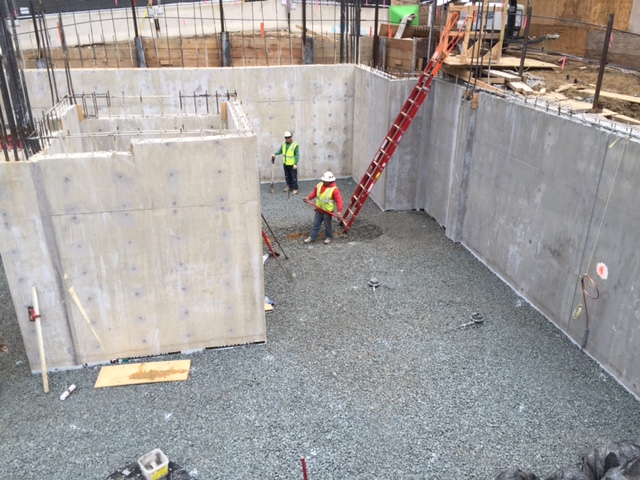
A service called air duct cleaning involves the removal of dirt, mold, and other contaminants inside your air conditioner ducts. This is an important service for any home or business, as it can make a huge difference in your overall health and comfort levels.
The Dirty Ducts to Cause Allergies, Respiratory Problems
Your air ducts can become clogged with allergens, dust, pet hair, and other particles over time. They then circulate through your house on average five to seven times per daily, which can trigger asthma and allergies.
These pollutants can also impact your family's health. It can be a good idea to have your ducts cleaned if you have a sick loved one. This will help to reduce symptoms and improve their health.
It can be helpful to have your ducts cleaned if you or your family suffer from allergies. This is especially true for those with chronic allergies or asthma.

It can also reduce the amount of coughing and sneezing that is associated with these conditions. This makes it easier to breathe easier for everyone.
For your family, cleaner air
Air in your home is more polluted than outside air. This is due to indoor pollutants such as cigarette smoke, paint fumes, gasses, and other sources.
These pollutants can be trapped in your ducts, which then re-circulate to the rooms via your HVAC system. It is important that your ducts are cleaned at least once a year.
A NADCA certified professional duct cleaner will help you. They will then connect a vacuum collection device with your ductwork to create negative pressure throughout (first on supply, then return).
Once the negative pressure has been created the technician will inspect each register and clean them individually with a rotating brush or air compressor. This method will take out most of the debris and dust that has accumulated in each run.

Reputable duct cleaners use a specialized device to distribute ionized hydrogen molecules to kill bacteria, viruses, and other airborne contaminants. This will improve the quality of your home's air and help you reduce your energy costs.
Reme Halo For Better Indoor Air Quality
The EPA recommends homeowners clean air filters at least once a month. However a NADCA certified duct cleaning professional can do a better job on a regular basis. While filters do a good job filtering out some pollutants, they are not able to remove all particles present in the air.
FAQ
Who is responsible for a Service Agreement
Your service agreement with your customer defines the services you will offer them. It outlines the customer's responsibilities, what you have to do for them, and when they have to pay you.
Additionally, the service agreement confirms whether additional fees will apply to extra services.
A service agreement should cover all terms and conditions. This includes delivery times, payment methods, warranties, and so forth.
This template will help you cover all aspects of the agreement.
What is a service agreement?
A Service Contract Agreement, or SCA, is an agreement between parties to offer services to one another. The SCA describes the services that are being offered, how they should be performed, who is responsible for their payment, and when they should begin. It also defines what happens if one party violates the agreement's obligations.
Is a Service Contract a Warranty?
A service agreement is not a warranty. It is an agreement between the parties to exchange goods and/or services. In this case, the customer agrees to pay the cost of repair or replacement if the product does not perform satisfactorily. This type of contract is also known by the term maintenance contract.
Do I have any other options?
Yes!
There are many things you can do to prepare for negotiations.
One method is to simply write down the terms and conditions.
Statistics
- (ii) Name, address, and telephone number of each proposed first-tier subcontractor with a proposed subcontract estimated at $10 million or more. (acquisition.gov)
- Don't take their anger personally, they are mad about the situation 99% of the time. (activatemylicense.com)
- (v) Place or places of performance of the prime contract and first-tier subcontracts estimated at $10 million or more, if known. (acquisition.gov)
- (1) Except as provided in paragraphs (a)(4) and (a)(8) of this section, if the estimated amount of the contract or subcontract is $10 million or more, the contracting officer shall request clearance from the appropriate OFCCP regional office before- (acquisition.gov)
- (d) Contractor disputes related to compliance with its obligation shall be handled according to the rules, regulations, and relevant orders of the Secretary of Labor (see 41 CFR60-1.1). (acquisition.gov)
External Links
How To
What should a contract of service include?
Every business relationship should have a Service Agreement (SA). It defines what you want from each other, and how you will get it. It also outlines when and where the other party must fulfill its contractual obligations.
Here are the essential elements to a successful SA
-
Both parties will agree to the scope of work.
-
Particulars of the payment terms, including delivery dates and start dates.
-
An agreed price for your project.
-
Additional charges such as VAT and other fees may apply.
-
Whether there is any other matter that should be discussed.
-
Who will take responsibility if there is an error in the job?
-
How disputes can be resolved
-
What happens if one of the parties breaches the contract?
-
What happens in case of dispute.
-
When will the contract become effective?
-
What happens if one or both of the parties fail to perform.
-
How long can you wait to pay invoices
-
Who pays for things such as travel expenses?
-
Where the money is coming from.
-
What happens if a client changes mind about the project?
-
What happens if the supplier isn't there?
-
Who has access to the site during construction?
-
What happens if the client cancels the project?
-
What happens if the product malfunctions?
-
What happens if the manufacturer refuses to supply parts.
-
What happens when the equipment stops working?
-
What happens if a project takes longer than expected?
-
What happens if you don't complete the work within the set timeframe?
-
What happens if the quality of the finished project falls below expectations?
-
What happens if the cost exceeds?
-
What happens if materials are not delivered on time?
-
What happens if your material arrives damaged?
-
What happens when the products don't meet standards?
-
What happens if the job gets cancelled before it is completed?
-
What happens if the business goes under?